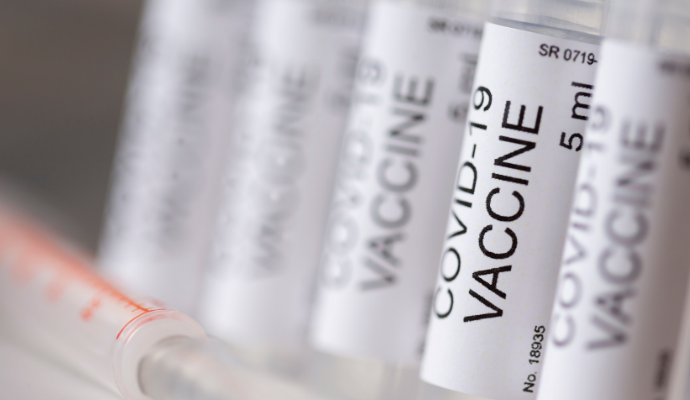EMA Assesses Blood Clots, Other Side Effects of COVID-19 Vaccines
Among the agency’s recommendations are a change to product information for the Pfizer-BioNTech COVID-19 vaccine, as well as assessment of COVID-19 Vaccine AstraZeneca for GBS.

Source: Getty Images
- EMA’s safety committee recently reviewed a number of risk and safety signals related to various COVID-19 vaccines
First, the committee known as PRAC (Pharmacovigilance Risk Assessment Committee) recommended a change to the product information regarding Pfizer and BioTech’s COVID-19 vaccine, BNT162b2. The recommendation came after the committee reviewed all available evidence, including cases reported to the European database.
The committee determined that there is at least a possibility of a causal association between the vaccine and reported cases of facial swelling in individuals with a history of injection with dermal fillers.
Therefore, PRAC stated that facial swelling in these individuals should be included as a side effect in the summary of product characteristics and in the patient information leaflet for the vaccine.
Notably, the benefit-risk factor for BNT162b2 remains unchanged.
PRAC also assessed reports of myocarditis with BNT162b2 and COVID-19 Vaccine Moderna. Myocarditis is inflammation of the membrane around the heart and has been mainly reported following vaccination with BNT162b2.
But PRAC requested the marketing authorization holder to provide further detailed data, including an analysis of the events according to age and gender. From there, the committee will decide if any other regulatory action is needed.
PRAC also requested the marketing authorization holder for COVID-19 Vaccine Moderna to monitor similar cases and provide an analysis of the potential events.
EMA stated that it will release new information as it becomes available.
Second, PRAC analyzed COVID-19 Vaccine AstraZeneca for Guillain Barre Syndrome (GBS), which has been reported following vaccination. GBS is an immune system disorder that causes nerve inflammation and can result in pain, numbness, muscle weakness, and difficulty walking.
PRAC is currently analyzing data provided by the marketing authorization holder to uncover if GBS is a possible adverse event requiring specific safety monitoring activities.
The committee requested further detailed data, including an analysis of all reported cases, and will continue its review and communicate further when new information becomes available.
PRAC is closely monitoring whether mRNA vaccines are linked to cases of rare, unusual blood clots with low blood platelets. This is a side effect that has been reported with COVID-19 Vaccine AstraZeneca and Johnson & Johnson’s COVID-19 vaccine.
So far, only a few cases of blood clots with low blood platelets have been reported.
In mid-April, the CDC and FDA paused rollout of the Johnson & Johnson COVID-19 vaccine due to six reported cases of severe and rare blood clots. This came after 6.8 million doses of the vaccine had been distributed across the country.
The blood clot, known as cerebral venous sinus thrombosis (CVST), was observed in combination with low levels of blood platelets (thrombocytopenia) among women between the ages of 18 and 48. Symptoms occurred 6 to 13 days after vaccination.
During its recent review, PRAC determined that the benefits of Johnson & Johnson’s COVID-19 vaccine outweigh the risks of side effects.
But the committee recommended further refinement of the warning about thrombocytopenia syndrome, which is low blood platelet count.
The product information should now include advice that patients who are diagnosed with thrombocytopenia within three weeks of vaccination should be investigated for signs of thrombosis.
Thrombosis with thrombocytopenia syndrome should also be added as an “important identified risk” in the risk management plan for the vaccine, EMA stated.
When seen in the context of the exposure of people to mRNA vaccines, the number of reported cases for COVID-19 AstraZeneca and Johnson & Johnson’s COVID-19 vaccine is “extremely low.” Additionally, there is no specific clinical pattern observed with either vaccine.
Therefore, PRAC determined that there are no safety signals for mRNA vaccines as of now.
For all the COVID-19 vaccines mentioned, EMA stated that it will continue to monitor the issues closely and communicate to the public if necessary.
